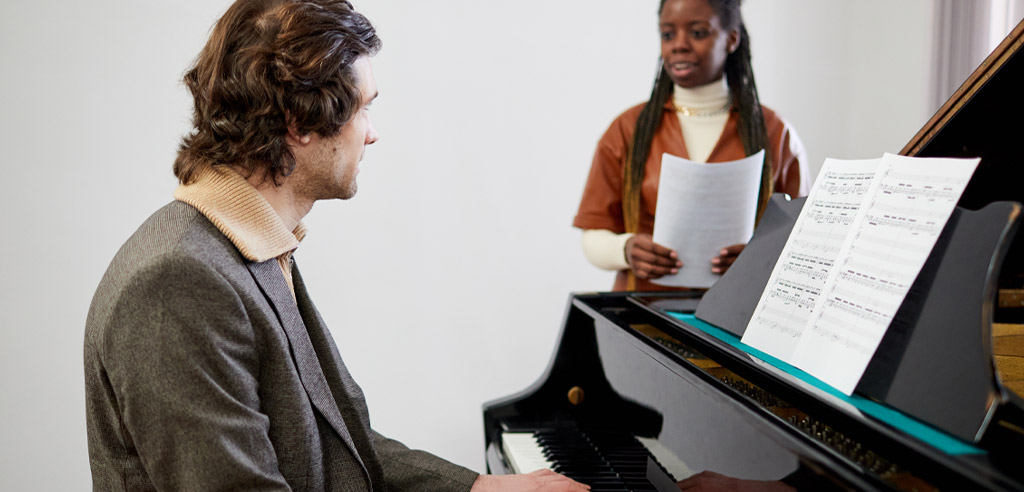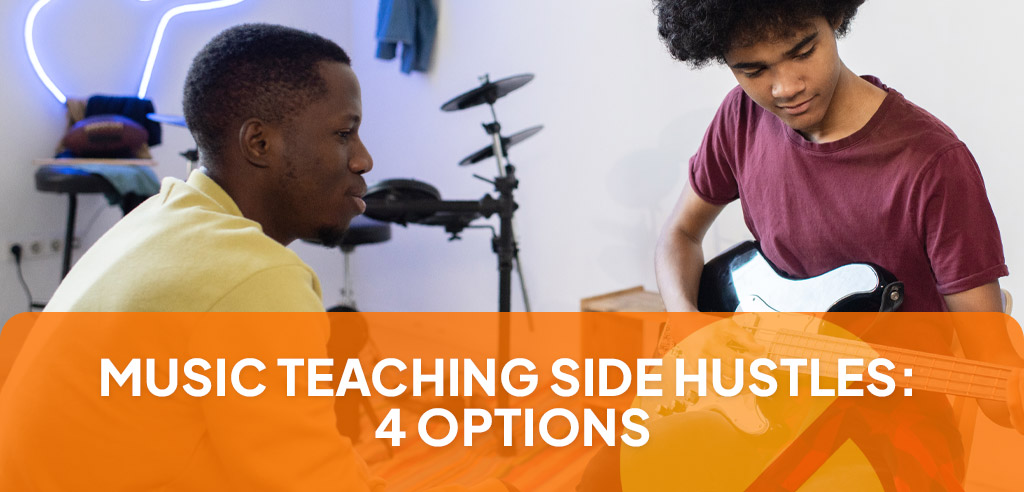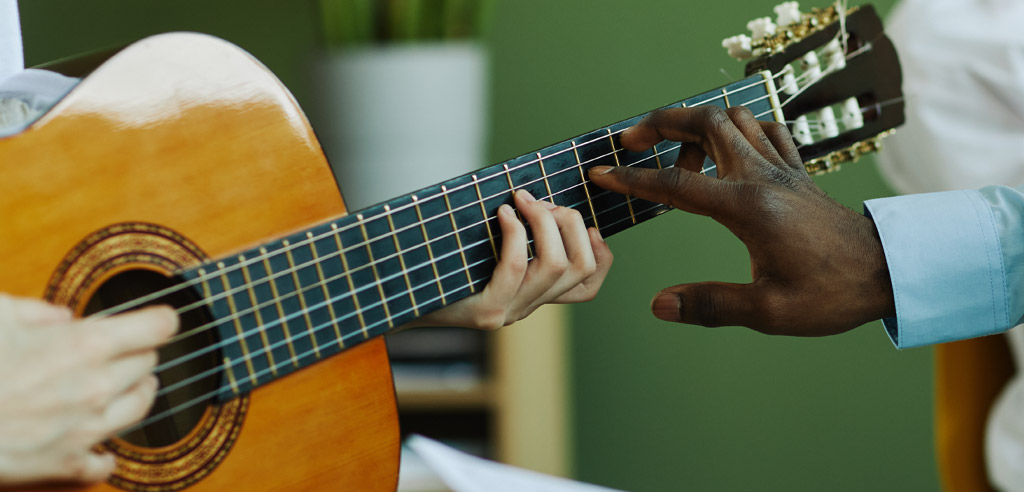This article features commentary from Jessica Peresta, a music teacher who taught at an elementary school for 7 years before starting her own private music teaching business.
How to Start a Music Teacher Side Hustle (Without a Degree)
Most experienced musicians are all too familiar with gig life. Securing a stable and adequate influx of cash as a musical artist is pretty much impossible without tapping into multiple income sources.
Of all the best side hustles for musicians, teaching music can be among the most rewarding. It gives you the opportunity to establish personal connections with budding musicians, hone your own musical skills, and earn a decent wage. The best part is that you probably already have everything you need to get started.

 Yes, you can absolutely teach music with no degree in music or education. However, you won’t be able to teach music in private or public school settings (regardless of the age level) since these jobs generally require at least a bachelor’s degree and a teaching certificate. There are also certain benefits to having a degree.
Yes, you can absolutely teach music with no degree in music or education. However, you won’t be able to teach music in private or public school settings (regardless of the age level) since these jobs generally require at least a bachelor’s degree and a teaching certificate. There are also certain benefits to having a degree. Being a music teacher at a school isn’t the only way to profit from passing on your musical knowledge. Here are a few alternatives that any skilled musician can try out.
Being a music teacher at a school isn’t the only way to profit from passing on your musical knowledge. Here are a few alternatives that any skilled musician can try out. We’ll walk you through some shortcuts for how to start on your journey as a music teacher with no education or teaching experience.
We’ll walk you through some shortcuts for how to start on your journey as a music teacher with no education or teaching experience. Whether you’re still actively performing and taking on gigs or you’re a retired musician, teaching music can be an incredibly satisfying and enriching side hustle.
Whether you’re still actively performing and taking on gigs or you’re a retired musician, teaching music can be an incredibly satisfying and enriching side hustle.